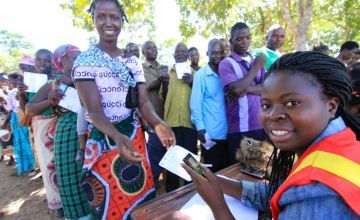
Read our 2024 annual report

Knowledge Hub
Lessons from gender and cash-based programming in Malawi
There has been a lack of analysis of the impact of cash transfers on power dynamics and gender-based violence in Malawi. This paper from Concern Worldwide seeks to fill that gap.

This paper asserts that cash transfers can have a life-saving impact, supporting women and men’s basic needs for food and other necessities during a disaster situation, without necessarily increasing GBV. It goes on to argue, however, that programmes such as the long-term Graduation model, which integrate cash-based assistance into wider resilience-raising interventions, provide a means of promoting social norm change and attitude change in the long term when issues of gender equality are explored and addressed throughout the programme.




